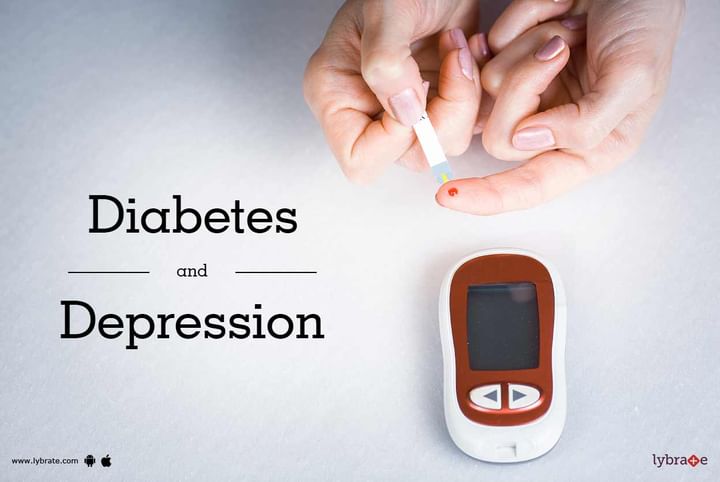Diabetes and Depression
According to most experts, depression and diabetes have been intricately connected in a vicious cycle. While the prolonged and sustaining nature of diabetes directly makes one vulnerable to the bouts of depression, doctors tend to locate traces of depression in the family history of an individual in order to diagnose the roots of diabetes. It won't be too far-fetched to state that both causes as well as affects the other.
If you have diabetes, either type 1 or type 2, you have an increased risk of developing depression. And if you're depressed, you may have a greater chance of developing type 2 diabetes. The good news is that diabetes and depression can be treated together. And effectively managing one can have a positive effect on the other.
How Diabetes and Depression Correlated?
There are myriad ways in which diabetes affects depression and vice versa.
Firstly, tackling such a long drawn disease and its various pitfalls might cause a lot of anxiety to one and lead to depression. Whereas on the other hand, depression reduces the zeal to live and thus results in poor lifestyle choices which in turn causes weight gain, unhealthy food habits, physical inactivity. As we are well aware, all these have the potential to wreak havoc for any patient of diabetes.
Similarly, diabetes ushers in various other health complications, adversely impacting one's productivity. This may cause depression in a lot of people.
On the flipside, depression impedes one's ability and enthusiasm to work or communicate, this in turn intervenes with one's monitoring of diabetes. Since these two extremely malevolent diseases have such close connections, medical science recommends ways to grapple with both. The rigors of managing diabetes can be stressful and lead to symptoms of depression.
Diabetes can cause complications and health problems that may worsen symptoms of depression.
Depression affects your ability to perform tasks, communicate and think clearly. This can interfere with your ability to successfully manage diabetes.
Treatment: Depression is just like any other illness, it can be treated. Treatment can lift the depression and improve diabetes control.
Looking after your diabetes will help decrease the risk of getting depression. If you already have depression, good diabetes management will help lessen the negative impacts it can have. Depression is no different to any of the other complication of diabetes. It is a genuine illness for which you need to seek help and support from health professionals.
The treatment for depression and diabetes involves a coordinated approach that monitors both diabetes control and the symptoms of depression. It is about finding the treatment that works best for each person. For example, people with diabetes and mild depression may find that regular physical activity improves depressed moods and also helps control blood glucose levels.
Helping Yourself.
If you suspect you might have depression, take control of your health by:
- Going to a doctor or other health professional
- Getting involved in social activities
- Engaging in regular moderate physical activity
- Learning about depression and diabetes
- Very particular about medicines prescribed for Diabetes
- Eating healthily and including a wide variety of nutritious foods
- Achieving and maintaining healthy weight
- Limiting your alcohol intake
- Getting help, support and encouragement from family and friends
- Asking your doctor to check your blood pressure, cholesterol and blood glucose levels



+1.svg)
